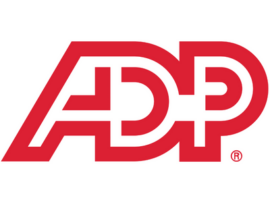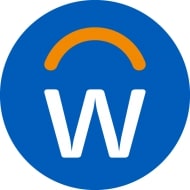Workday vs. ADP: Choosing the right payroll service
Payroll processing is an integral part of any business, so the right payroll service can make a huge difference in business efficiencies. With so many options available, choosing the best one for your needs can be difficult.
SEE: Payroll processing checklist (TechRepublic Premium)
Two of the most popular payroll management services are Workday and ADP, which offer comprehensive payroll services for businesses of varying sizes and industrial backgrounds. This product guide will compare Workday vs. ADP to help you make the best decision for your business’s payroll needs.
Jump to:
What is ADP?

ADP is a payroll, human resources and benefits administration services provider that also offers talent management, time and attendance, HR BPO, retirement services and insurance services for small, mid-sized and large businesses.
ADP is a leading payroll company in the industry, offering specialized products and services for industries with complex compliance requirements, such as manufacturing, professional and technical services, financial services, construction, retail, hospitality, government, education and healthcare. Additionally, ADP offers a marketplace of integrated solutions to help businesses manage and optimize their HR operations.
Compare ADP to other payroll solutions: ADP vs. Gusto: Which payroll software is better?
What is Workday?

Workday is a cloud-based human capital management and financial management software provider. It provides global organizations with a single system to manage their entire employee lifecycle, from recruiting, onboarding and talent management to career development, payroll and benefits administration.
The platform also helps organizations with financial planning, budgeting, forecasting, revenue and cost management. Workday enables organizations to manage and analyze their data in real-time, creating more visibility into their workforce and operations.
ADP vs. Workday: Feature comparison table
ADP and Workday share many overlapping features and functions, but they also offer some key differentiators. Take a look at our quick feature comparison table to see how they stack up against each other:
| Features | ADP | Workday |
|---|---|---|
| Reporting and analytics | Yes | Yes |
| Automatic tax filing | Yes | No |
| Benefits administration | Yes | Yes |
| Mobile app | Yes | Yes |
| Performance management | Yes | Yes |
| Community support portal | No | Yes |
| Transparent pricing | No | No |
| Ideal customer company size | Small, medium and large | Medium and large |
ADP vs. Workday: Features
These two leading cloud-based HCM solutions offer a wide range of features to help businesses manage their teams effectively and efficiently. Here’s how the two providers compare in a few key areas:
Support
Both ADP and Workday offer comprehensive support for their users. ADP provides automated phone support for basic questions and an online resource center with how-tos, webinars and FAQs. They also offer higher pricing tiers that include dedicated support representatives.
On the other hand, Workday assigns a dedicated customer success manager who will onboard users and act as their contact person. They also offer community support and 24/7 online expert support.
Users who need immediate assistance and prefer a more personalized solution may find Workday’s dedicated customer success manager and 24/7 online expert support more beneficial. Those who want a more self-service approach and are comfortable with online resources may find ADP’s automated phone support and online resource center preferable.
Ease of use
ADP and Workday are robust HR and payroll solutions that can help streamline and automate processes. Both platforms offer powerful features and have earned high marks for customer satisfaction.
ADP’s basic features are generally easy to use and require minimal training. These features include a range of payroll and HR tools, such as employee self-service, payroll processing, and time and attendance tracking. Advanced features like workforce analytics and reporting may require additional training.
Workday provides an easy-to-use, organized interface with streamlined processes, well-structured menus and sub-menus. Workday’s user-friendly features are ideal for users who are new to HR and payroll software or those who are looking for a simple way to manage their organization’s HR and payroll needs.
Overall, both ADP and Workday offer robust, easy-to-use features. Workday’s modern, streamlined interface may be the better choice for less experienced users, but for those with more complex tooling needs, ADP may be the better option.
Benefits administration
Both Workday and ADP offer the ability to manage and track employee benefits, including health insurance and retirement plans.
ADP provides a comprehensive benefits administration solution that includes the ability to manage and track employee benefits and customize and adjust benefits as needed.
Workday provides a benefits administration solution that combines HR data with a benefits package. It also syncs benefits with employee status changes, such as new hires, salary increases and promotions. With Workday, employers can manage and track employee benefits and customize and adjust benefits.
Both ADP and Workday offer comprehensive and fairly equivalent benefits administration solutions for users who want to manage, track, customize and adjust employee benefits. The deciding factor may be the cost of implementation and the overall support offered by each vendor.
Tax reporting
Tax reporting is a critical component of payroll. As an employer, it is essential to use a payroll tool that helps with tax reporting and filing.
ADP offers a comprehensive payroll solution that allows employers to file and pay federal, state and local taxes on behalf of their clients. This helps employers stay compliant with their tax obligations and ensures the accuracy of information reported to taxing authorities.
With Workday, the tax filing process is outsourced to partners such as Alight Solutions, everBe, HRPath, NorthgateArinso and OneSource Virtual. This approach may work for some employers; however, it does mean the employer is trusting an additional third party to accurately complete tax payment and filing in a timely fashion.
ADP pros and cons
Although ADP provides many advantages, it also has some drawbacks. Here’s a closer look at ADP’s pros and cons:
Pros
- Automatic tax filing.
- Extensive knowledge base.
- Highly customizable.
- Several payroll plans for various user categories.
- Extensive integrations.
Cons
- Tool is pricey.
- User interface could be improved.
- Lacks transparent pricing.
Workday pros and cons
Workday exceeds many customers’ expectations, but it also has areas where it could improve. Here are some pros and cons to consider while evaluating Workday:
Pros
- Ease of use and intuitive user interface design.
- Highly customizable.
- 24/7 customer support.
- Strong performance management functionality.
Cons
- Lacks transparent pricing.
- No automatic tax filing.
- According to some users, Workday is expensive.
ADP and Workday pricing
ADP and Workday both lack transparent pricing, at least on their consumer-facing websites. Prospective buyers must reach out to each company for custom quotes.
ADP offers various pricing plan tiers, including Essential, Enhanced, Complete and HR Pro, but the price for each of these plans is not advertised. ADP offers a three-month free trial, while interested Workday users can request an adaptive planning free trial.
Choosing between ADP and Workday
The choice between ADP and Workday depends on various factors, including the size of the organization and its business needs.
ADP is a well-established provider, offering an extensive range of HR services and features, including payroll, benefits administration, time tracking, recruiting and performance management. It is a good choice for growing businesses that are scaling quickly, as it offers a comprehensive suite of services and is able to scale according to an organization’s evolving needs.
On the other hand, Workday is an enterprise-level solution that is best suited for medium-sized and larger organizations. It is also simpler to configure and use than ADP and offers a more intuitive user interface. Workday is a good option for enterprises that want an easy-to-use solution with features and tools to improve employee engagement and productivity.
Ultimately, the choice between Workday vs. ADP comes down to your organization’s specific payroll needs and budget. Both ADP and Workday offer a range of features and services that can be tailored to meet your requirements, but it is essential to weigh the pros and cons of each system before making a final decision.
Read next: The best payroll software for your small business (TechRepublic)
For all the latest Technology News Click Here
For the latest news and updates, follow us on Google News.
